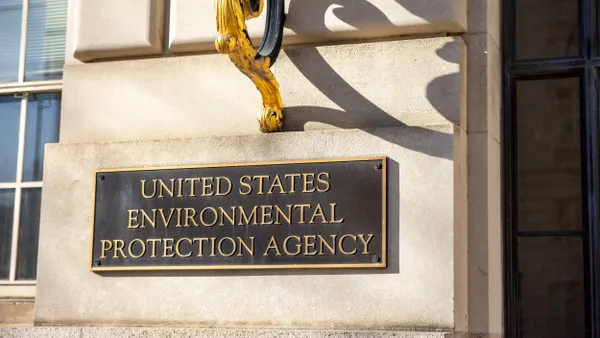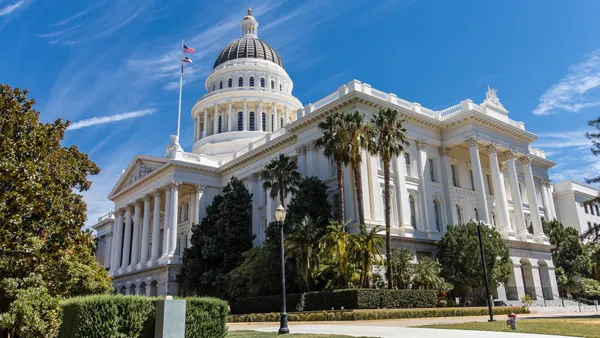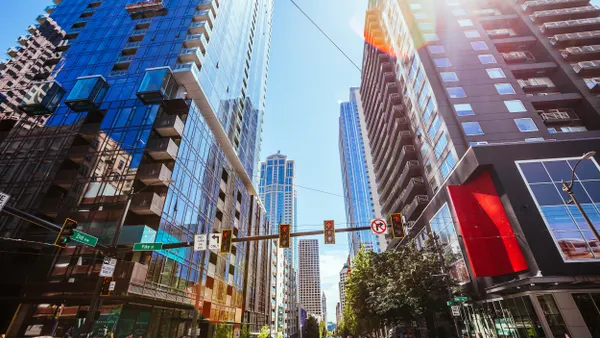CHICAGO — Cities are asserting themselves on non-local issues, as national governments increasingly lean toward protectionism, according to panelists at the recent Chicago Forum on Global Cities. Around the world, city leaders are speaking out and taking action on issues like climate change, immigration and trade, for which they largely don't have jurisdiction, as their interests are overtaken by national policy.
"You don't define the world through countries and continents anymore, you define the world through cities," said former Montreal Mayor Denis Coderre. And with almost 70% of the world's population living in or moving to cities in the next couple decades, "you have no choice, the future lies with cities," he said.
American leaders held similar discussions at the U.S. Conference of Mayors in Boston last week, noting cities are stepping up as state and federal governments are plagued by partisanship and gridlock. Generally, cities are lauded for being less partisan and more effective at solving residents' problems and providing services.
"You don't define the world through countries and continents anymore, you define the world through cities."

Denis Coderre
Former mayor, Montreal
"This notion of more progressive mayors, as opposed to a national government, is not only happening in the United States, you see it all across Europe" and around the world, said Eytan Schwartz, CEO of Tel Aviv Global, at the Chicago forum.
Regardless of whether leaders agree or disagree on national policy, cities "have the worst problems and the best solutions," Coderre said. "You cannot talk about economic development without social development and sustainable development ... We cannot work in silos anymore," and cities "need to be a part of the solution" for climate change and immigration, he said.
The vast amount of job opportunities in cities means they attract much of a country's talent, including immigrants. "To be a magnet for economic reasons — for growth — immigration is clearly important," Coderre said, explaining that without immigration, "we will all witness a shortage of qualified workers."
"The role of local players is fundamental" in global affairs like immigration, said Carlos Sada, undersecretary for North America, Secretariat of Foreign Affairs of Mexico. He said regardless of a country's national immigration policy, cities can make it known that immigrants are welcome.
Sada offered the example of Chicago's CityKey municipal ID card, which was initially designed for residents like immigrants, the homeless and the aging who might have a difficult time obtaining a traditional ID. "No matter what happens at the top, the rest of the political and economic actors are participating every single day," he said.
Municipalities also are taking a harder look at trade and how to navigate that space because, although policies are negotiated at a national level, the trade and transactions themselves happen in cities at ports and airports while affecting local businesses.
Such is also the case with climate change. Although President Trump decided the U.S. would pull out of the Paris climate agreement, that decision affects cities' environmental health, thus prompting local and state leaders to band together for climate action. For example, Los Angeles Mayor Eric Garcetti just last week announced a commitment to getting the city to carbon neutral by 2050. "It's a shared responsibility across the entire city, all the departments," said Los Angeles Deputy Mayor for International Affairs Nina Hachigian while speaking at the Chicago forum.
Amid the focus on cities contributing to global conversations, panelists urged leaders to keep a mindful eye to local equity and the well-being of nearby non-city dwelling residents.
"Cities are projecting and advocating and expressing their own values ... in order to attract talent," as well as businesses and tourists, said Lucy Turnbull, chief commissioner of the Greater Sydney Commission. But while cities project themselves onto the world's radar, "the quality of this conversation and discourse between the global cities and the non-global world could definitely improve," she said. "We will look like a pretty self-satisfied lot if we don't talk and engage with the people who are outside of global cities, and also the people inside of the global cities who don't feel like they're part of the success stories."










